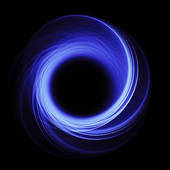Official Everybody Edits Forums
Do you think I could just leave this part blank and it'd be okay? We're just going to replace the whole thing with a header image anyway, right?
You are not logged in.
- Topics: Active | Unanswered
#1 2017-05-18 19:45:51, last edited by SirJosh3917 (2017-05-19 19:32:19)
- SirJosh3917
- Formerly ninjasupeatsninja

- From: USA
- Joined: 2015-04-05
- Posts: 2,095
[Trakk] color trakk - testing cool idea woot if i should continue this
Offline
- Wooted by: (13)
#2 2017-05-18 20:07:42, last edited by LukeM (2017-05-18 20:09:32)
#3 2017-05-18 20:15:03
- SirJosh3917
- Formerly ninjasupeatsninja

- From: USA
- Joined: 2015-04-05
- Posts: 2,095
Re: [Trakk] color trakk - testing cool idea woot if i should continue this
Thats quite cool
Although it loads a bit slow... How do you generate / send the image?
via php
its my terrible internet connection
Offline
#4 2017-05-18 20:57:07
- Priddle
- Member

- From: The Netherlands
- Joined: 2015-02-15
- Posts: 454
Re: [Trakk] color trakk - testing cool idea woot if i should continue this
Thanks for the cookies ![]()
Offline
#5 2017-05-18 21:35:59
Re: [Trakk] color trakk - testing cool idea woot if i should continue this
destroyer123 wrote:Thats quite cool
Although it loads a bit slow... How do you generate / send the image?
via php
its my terrible internet connection
It shouldnt take that long... The images only seem to be just over 100 bytes. I guess ping might come into it though if a lot of requests are being made
Are you sure that the delays arent server side?
Edit: It seems to be faster now (less than a second instead of 2-3), maybe it was just that a lot of people were all viewing this page all at once
Offline
#6 2017-05-18 22:03:51, last edited by Swarth100 (2017-05-18 22:08:38)
- Swarth100
- Member

- Joined: 2015-07-18
- Posts: 305
Re: [Trakk] color trakk - testing cool idea woot if i should continue this
ninjasupeatsninja wrote:destroyer123 wrote:Thats quite cool
Although it loads a bit slow... How do you generate / send the image?
via php
its my terrible internet connection
It shouldnt take that long... The images only seem to be just over 100 bytes. I guess ping might come into it though if a lot of requests are being made
Are you sure that the delays arent server side?Edit: It seems to be faster now (less than a second instead of 2-3), maybe it was just that a lot of people were all viewing this page all at once
Propagation delay, what you here mistype as ping, is measured as the time that it takes for packets to travel through the physical wires between a client and a server.
Note: Bits travel at a speed of (2/3) the speed of light across a double twisted copper wire (i.e. 200 000 km/s).
RTT, the roundtrip time, is, instead, the time it takes for your packet to:
1) Be processed by you, the client,
2) Be dispatched
3) Be sent through the network
4) Be processed by the server
5) Do the same on the way back.
In this scenario, the transfer delay is the least of the problems.
Low bandwidth at either end (client/server)? The MTU of packets will be low regardless of propagation delay.
High service delay from the server? Clients will wait for up to seconds before timing out, propagation delay is usually in the order of magnitude of milliseconds.
Ping is instead a network utility used to test ICMP packets.
For instance, routers would usually ping other routers to test their respective RTTS during BGP routing.
Offline
- Wooted by:
#7 2017-05-18 23:25:07, last edited by LukeM (2017-05-18 23:26:45)
Re: [Trakk] color trakk - testing cool idea woot if i should continue this
I guess it isnt actually a ping message, but wouldnt the time taken to ping a message be approximately the same as the propagation delay (x2)?
Either way, what I meant was that the time for the request to be sent and routed to his server could play a part in it, as Im guessing that the connection isnt left open between images loaded, so there would be 13 * however many messages need to be sent / recieved per image (usually just one there and one back, but as he is using php idk) requests, which would mean that for about a half second load time, each request would have about a 40ms delay, which isnt too bad.
Earlier when it was 2-3 seconds im guessing that it wasnt just the delay, as it would have had to have been 200ish ms per image, which is much longer than you would expect
Offline
#8 2017-05-19 06:20:02
- Swarth100
- Member

- Joined: 2015-07-18
- Posts: 305
Re: [Trakk] color trakk - testing cool idea woot if i should continue this
I guess it isnt actually a ping message, but wouldnt the time taken to ping a message be approximately the same as the propagation delay (x2)?
Either way, what I meant was that the time for the request to be sent and routed to his server could play a part in it, as Im guessing that the connection isnt left open between images loaded, so there would be 13 * however many messages need to be sent / recieved per image (usually just one there and one back, but as he is using php idk) requests, which would mean that for about a half second load time, each request would have about a 40ms delay, which isnt too bad.
Earlier when it was 2-3 seconds im guessing that it wasnt just the delay, as it would have had to have been 200ish ms per image, which is much longer than you would expect
Usually the main component of RTT is packaging/processing delay.
Where possible TCP's windowed approach will likely have sent all secondary 13 requests in parallel to the server.
Offline
- Wooted by:
#9 2017-05-19 15:27:56, last edited by SirJosh3917 (2017-05-19 15:44:04)
- SirJosh3917
- Formerly ninjasupeatsninja

- From: USA
- Joined: 2015-04-05
- Posts: 2,095
Re: [Trakk] color trakk - testing cool idea woot if i should continue this
3Mbps download 0.25Mbps upload
does that solve this destroyer123?
---
also what ideas do you guys think i should make with this
i think this is something really cool that could get turned into something cooler
Offline
- Wooted by:
#10 2017-05-19 19:35:58
- SirJosh3917
- Formerly ninjasupeatsninja

- From: USA
- Joined: 2015-04-05
- Posts: 2,095
Re: [Trakk] color trakk - testing cool idea woot if i should continue this
new updateios
1) cacheing RGB images so that way it can hopefully speed up loading, tell me if you guys see a difference
2) now calling this "Color Trakk". Trakk means that it tracks your actions, it allows you to change things and different things will happen. idk i think its a good name
Offline
#11 2017-05-19 20:02:47
Re: [Trakk] color trakk - testing cool idea woot if i should continue this
3Mbps download 0.25Mbps upload
does that solve this destroyer123?
250Kbps is still loads compared to the 10ish Kb of data being transferred, so I still dont think it would be (at least not completely) because of that
new updateios
1) cacheing RGB images so that way it can hopefully speed up loading, tell me if you guys see a difference
2) now calling this "Color Trakk". Trakk means that it tracks your actions, it allows you to change things and different things will happen. idk i think its a good name
![]() much better
much better
Offline
#12 2017-05-19 20:37:18
- SirJosh3917
- Formerly ninjasupeatsninja

- From: USA
- Joined: 2015-04-05
- Posts: 2,095
Re: [Trakk] color trakk - testing cool idea woot if i should continue this
hey also added an api and official place for it here
read about the api to use it in your own projects if you need.
im still hungry for ideas with this, i know it can do something great.
Offline
#13 2017-05-19 21:57:25, last edited by LukeM (2017-05-19 21:57:59)
Re: [Trakk] color trakk - testing cool idea woot if i should continue this
Just thought I would add, its probably best not to use multiple cookies if you dont need to, just use one with either something like base64 for more complicated, or just a colour string for simpler things like this ("#RRGGBB" or "#RGB" with R, G and B being their hex values)
Offline
#14 2017-05-19 23:14:29
- Swarth100
- Member

- Joined: 2015-07-18
- Posts: 305
Re: [Trakk] color trakk - testing cool idea woot if i should continue this
Just thought I would add, its probably best not to use multiple cookies if you dont need to, just use one with either something like base64 for more complicated, or just a colour string for simpler things like this ("#RRGGBB" or "#RGB" with R, G and B being their hex values)
Most websites would assign every user with a unique cookie identifier.
Said identifier is sent down in the TCP/IP header to the server when connecting.
Server is thus responsible to keep track of user's data, performing lookups over cookie ids.
Offline
#15 2017-05-19 23:19:48
- SirJosh3917
- Formerly ninjasupeatsninja

- From: USA
- Joined: 2015-04-05
- Posts: 2,095
Re: [Trakk] color trakk - testing cool idea woot if i should continue this
I could use $_SESSION if it'd make you feel better. It'd be less "hackable" too.
Offline
#16 2017-05-20 00:44:15
- Priddle
- Member

- From: The Netherlands
- Joined: 2015-02-15
- Posts: 454
Re: [Trakk] color trakk - testing cool idea woot if i should continue this
I could use $_SESSION if it'd make you feel better. It'd be less "hackable" too.
But closing the browser will reset the color if you use $_SESSION ![]()
Offline
#17 2017-05-20 11:33:32
Re: [Trakk] color trakk - testing cool idea woot if i should continue this
Just use a single cookie with red green and blue in (e.g. "#RRGGBB"), instead of using 3 cookies as you suggest you do on your website:
To save colors, Color Trakk uses cookies within the user's browsers, colr, colg, and colb
You shouldn't ever need to read / change one without changing the other two, so there isnt any point using 3 seperate cookies
Offline
[ Started around 1714091143.1872 - Generated in 0.073 seconds, 13 queries executed - Memory usage: 1.65 MiB (Peak: 1.87 MiB) ]
